Pipelines deliver crude oil and gas to refineries, where they are refined into the items we use on a daily basis. Pipelines transmit these items from there, providing gasoline for our vehicles, trucks, planes, and ships through a huge pipeline infrastructure. Gas is also utilized to heat and prepare food in homes and businesses. These pipelines are found underground and underwater and when unfortunate incidents happen, crude oils and gas spilled cause fire and contamination. Oil is difficult to remove from water, but what happens when it sinks?
Here are the deadliest pipeline accidents within the recent decade.
- Western North Dakota, near Belfield: Dec. 5, 2016
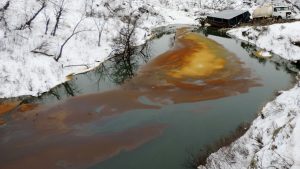
- Yellowstone River, northeastern Wyoming: Jan. 17, 2015
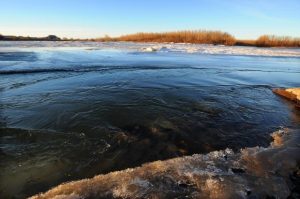
- Kalamazoo River, Michigan: July 25, 2010
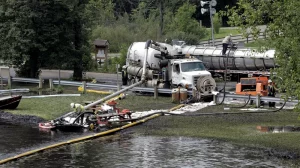 A thirty-inch pipeline carrying diluted bitumen from Canada burst a six-foot gash along a deteriorated seam in south-central Michigan, spilling 843,000 gallons of heavy oil product into the Kalamazoo River. The pipeline’s operator, Canadian energy transporter Enbridge, would be held accountable for the greatest inland oil leak in U.S. history, with the U.S. A member of the National Transportation Safety Board likened the company’s spill response to the “Keystone Cops.” The Enbridge oil spill rapidly became Exhibit A in the argument against the Keystone XL pipeline, which President Obama finally rejected in 2015. While scientists and activists discussed whether or not diluted tar sands bitumen was more destructive to pipelines than ordinary oil, another significant tar sands pipeline made the news.
A thirty-inch pipeline carrying diluted bitumen from Canada burst a six-foot gash along a deteriorated seam in south-central Michigan, spilling 843,000 gallons of heavy oil product into the Kalamazoo River. The pipeline’s operator, Canadian energy transporter Enbridge, would be held accountable for the greatest inland oil leak in U.S. history, with the U.S. A member of the National Transportation Safety Board likened the company’s spill response to the “Keystone Cops.” The Enbridge oil spill rapidly became Exhibit A in the argument against the Keystone XL pipeline, which President Obama finally rejected in 2015. While scientists and activists discussed whether or not diluted tar sands bitumen was more destructive to pipelines than ordinary oil, another significant tar sands pipeline made the news.
- Mayflower, Arkansas: March 29, 2013

- Burnaby, British Columbia: July 24, 2007

- Sissonville, West Virginia: Dec. 11, 2012
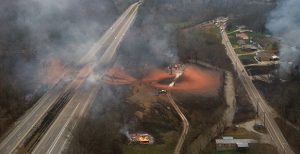
- Salem Township, Pennsylvania: April 29, 2016
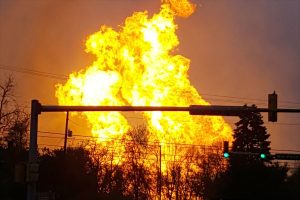
- Shelby County, Alabama: Oct. 31, 2016
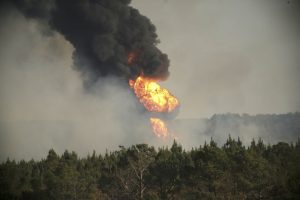
Even if we could put an end to this string of disasters, many people oppose pipelines since each new project represents a multi-million dollar commitment to continue fossil fuel extraction and use for decades.



